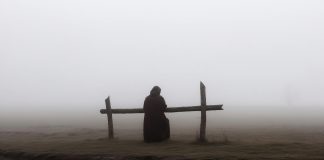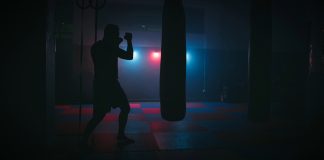A brief treatise on (dis)illusion
In some African communities, during the harsh dry season when food becomes scarce and mothers can no longer feed all their children, a tragic custom persists: some children are left in open-air enclosures to die of starvation.
The mad monk and the case for good theology
The Oxford Online Dictionary describes theology as “the study of the nature of God and religious belief”. That’s a helpful understanding, but let’s begin with some seriously bad theology as practised by the Russian mystic and faith healer Grigori Yefimovich Rasputin.
Freedoms on the verge of extinction
"We are fast approaching the stage of the ultimate inversion: the stage where the government is free to do anything it pleases, while the citizens may act only by permission; which is the stage of the darkest periods of human history, the stage of rule by brute force." (Ayn Rand)
How to raise confident children
While it can be healthy to be aware of other people’s judgement—we can adjust our behaviour to become more pro-social—sensitivity to the perception of judgement can get out of hand. In worst case scenarios, children can become depressed, anxious and avoid settings in which judgement is anticipated. Here are some strategies to help, as shared by clinical psychologist Katie Kjelsaas.
Preconceptions that cause unnecessary anxiety for parents
Today's mothers are faced with difficult decisions: breastfeeding or formula feeding, having a career or being a stay-at-home parent, modern or traditional education—and silent pressure from the fear that any choice they make is a mistake. This constant doubt weighs more heavily on them than the choices themselves.
The fear that holds kids back
Before the age of two, most children think the world revolves around them. From their point of view, what they think and how they feel must be what others think and feel, too. They don’t have the concept that other people have different needs and perspectives. It’s why if they can’t see you when they’re playing hide-and-seek, they believe you surely can’t see...
The boots that filled a void in the soul
No matter how hard we try to hide it, there are days when we are struck by the overwhelming feeling that our lives, however beautiful and enviable, are missing something essential.
Good people, bad people
I have always loved family photographs, especially old ones. They allow you to wander freely through the stories of times and lives that are little known yet also familiar.
Assertive behaviour: a remedy for poor communication
I believe that every Eastern European has, at some point, realised when meeting a Westerner that their interaction could be improved if they were more open themselves, as the foreigner usually is.
Compassion, empathy and bullying
Raising children with the ability to empathise is key in creating a kinder, more compassionate and loving world.
The mothers of the mothers
In this heartfelt collection of interviews, six women from diverse backgrounds reflect on the joys, challenges, and lessons of motherhood and grandparenting. From raising children during communism in Romania to navigating single parenthood, depression, and cultural transitions, their stories offer wisdom, resilience, and deep love across generations. A moving portrait of motherhood’s enduring strength.
The Dunghutti Destroyer and the fight of his life
Renold Vatubua Quinlan is a “proud Dunghutti man” with Fijian heritage. He grew up on the mid-north coast of New South Wales around Port Macquarie and Kempsey. Known as the Dunghutti Destroyer, Quinlan is a professional boxer who held the IBO super-middle weight title from 2016 to 2017. “My biggest experience in my life was winning the world title,” he said.
Deadly ideas
“To them I will give within my temple and its walls a memorial and a name better than sons and daughters; I will give them an everlasting name that will endure forever” (Isaiah 56:5).
How to survive the loss of a child
“I knew her face better than my own. Still, I had to say goodbye. I had to walk away. That’s what you do when someone dies. Except this wasn’t just someone. It was Ana, my sweet girl.”
The quest for perfection among today’s parents
Anyone who thinks they know exactly how to raise a child will usually change their perspective after becoming a parent. Beyond the joy of welcoming a new family member, they are confronted with the "despair and helplessness" of navigating the complex and unfamiliar world in which they now find themselves, writes psychotherapist Isabelle Filliozat.


























